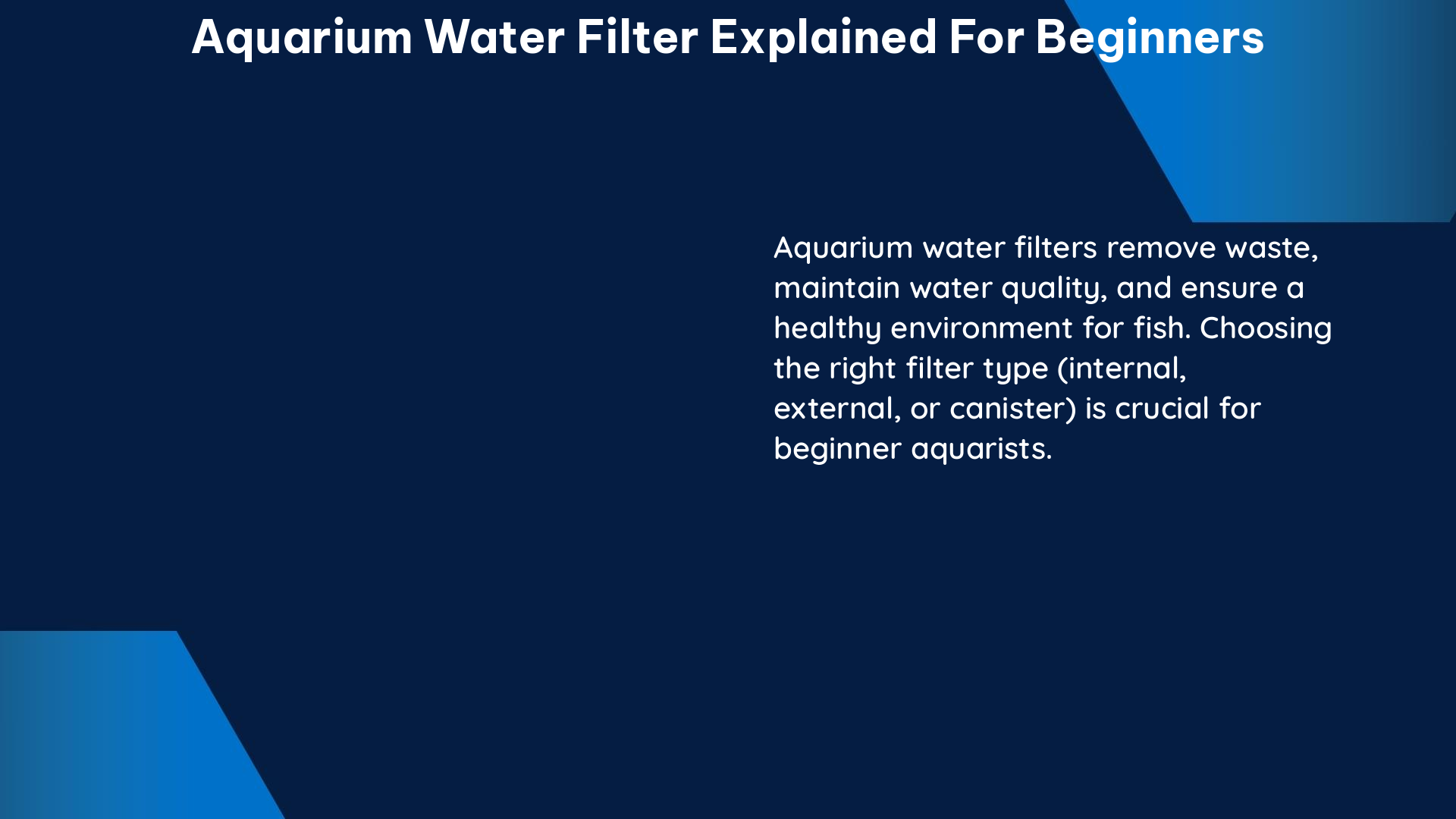Aquarium water filters are essential for maintaining a healthy aquatic environment by removing waste, toxins, and other harmful substances. For beginners, understanding the technical specifications and components of aquarium water filters can be overwhelming. This comprehensive guide will provide you with a detailed breakdown of the key concepts and measurements to consider when selecting and using an aquarium water filter.
Filter Types
Aquarium water filters come in three main types of filter media: mechanical, chemical, and biological.
-
Mechanical Media: This type of filter media removes physical particles, such as uneaten food, waste, and debris, from the water. Mechanical filtration is the first step in the filtration process and helps to keep the water clear and free of visible impurities.
-
Chemical Media: Chemical media is designed to remove dissolved impurities, such as toxins, heavy metals, and discoloration, from the water. This type of filter media typically includes activated carbon, which is highly effective at adsorbing a wide range of organic and inorganic compounds.
-
Biological Media: Biological media provides a large surface area for beneficial bacteria to colonize and break down waste, such as ammonia and nitrites, into less harmful substances. This process is essential for maintaining a healthy aquarium ecosystem.
Filter Media Surface Area

The surface area of the filter media is a critical factor in its effectiveness. A larger surface area allows for more bacteria to colonize and break down waste, improving water quality. For example, Seachem Matrix has a bioavailable surface area of approximately 1,000 m²/m³, which is significantly higher than other biomedias like Fluval and Eheim, which have surface areas of around 500 m²/m³ and 300 m²/m³, respectively.
Flow Rate
The flow rate of an aquarium water filter, measured in gallons per hour (GPH), determines how quickly water is processed through the filter. A higher flow rate can handle larger aquariums and higher bioloads, but it may also require more frequent media cleaning.
| Aquarium Size | Recommended Flow Rate |
|---|---|
| Up to 20 gallons | 100-200 GPH |
| 20-40 gallons | 200-400 GPH |
| 40-60 gallons | 400-600 GPH |
| 60-100 gallons | 600-1000 GPH |
It’s important to note that the flow rate should be adjusted to ensure adequate water circulation throughout the aquarium, as well as to prevent excessive water movement that could stress the fish.
Filtration Volume
The volume of filter media, measured in gallons, determines how much water can be processed at once. A general rule of thumb is to have at least 10% of the aquarium volume in filter media. For example, a 50-gallon aquarium should have at least 5 gallons of filter media.
Media Order
The order in which water flows through the filter media is important. The water should go through the filter media in the following order:
- Coarse Mechanical
- Fine Mechanical
- Basic Chemical (Carbon)
- Specific Chemical
- Biological
This order ensures that physical particles are removed before the water reaches the chemical and biological media, preventing clogging and improving efficiency.
Maintenance
Regular maintenance, including cleaning or replacing filter media, is essential for maintaining the effectiveness of an aquarium water filter. The frequency of maintenance depends on the type of media and the bioload of the aquarium.
- Mechanical media should be cleaned or replaced every 2-4 weeks, depending on the aquarium’s bioload.
- Chemical media, such as activated carbon, should be replaced every 4-6 weeks.
- Biological media should be cleaned or replaced every 6-12 months, as the beneficial bacteria can become overcrowded or clogged.
It’s important to follow the manufacturer’s recommendations for maintenance and to avoid disrupting the biological cycle of the aquarium during the cleaning process.
By understanding the technical specifications and components of aquarium water filters, beginners can make informed decisions when selecting and using a filter that best suits their aquarium’s needs. Remember, a well-maintained and properly functioning water filter is crucial for the health and well-being of your aquatic inhabitants.
References:
- Aquarium Science – Filter Media
- YouTube – Aquarium Filtration Explained
- Live Aquaria – Aquarium Filtration
- Aquarium of the Pacific – The ABCs of Filtration
- Advanced Aquarium Concepts – Aquarium Filter Media Types Guide
- FishLore – Filter Media Surface Area Calculations
- Petco – Aquarium Filtration
- The Spruce Pets – Aquarium Filtration
